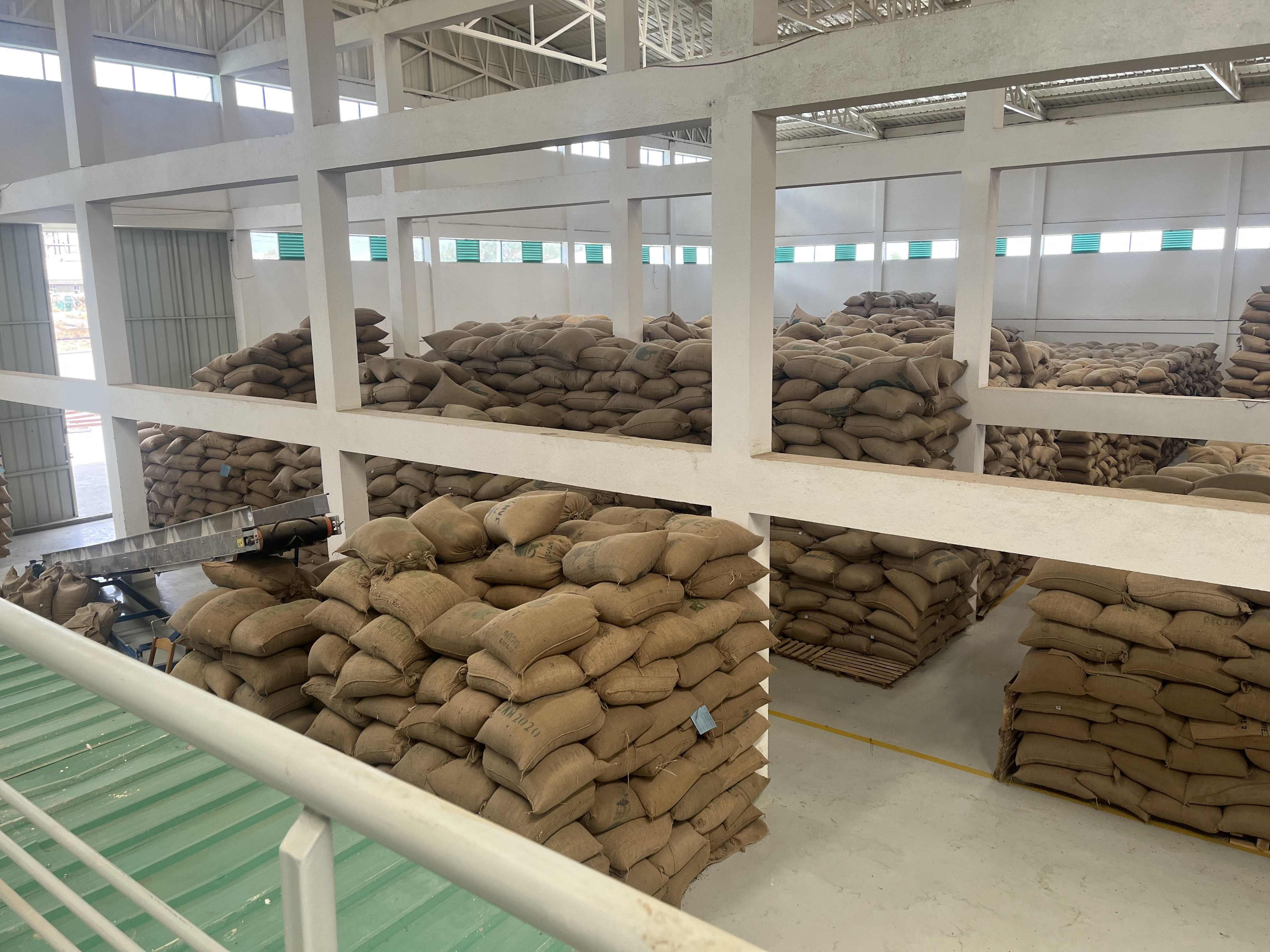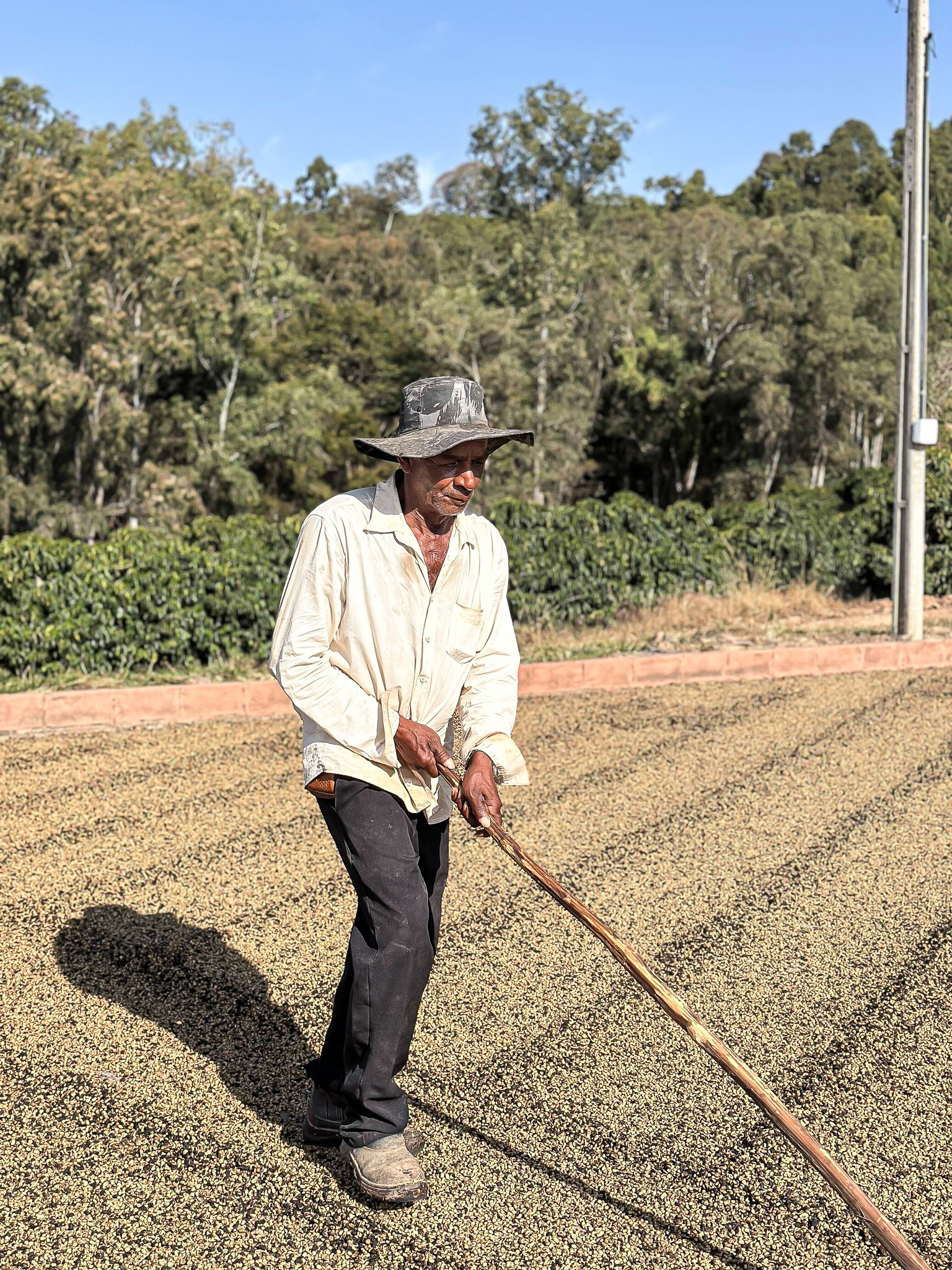Honduras

Unique relationships with control of the entire production cycle, from washed microlots to funky experimental preps.
When we started working in Honduras in 2013, we identified significant growth potential. We work within specific, self-defined coffee regions, with two distinct suppliers: one situated in Marcala and the other in Intibucá. By being present throughout the entire production cycle, our partners can prioritise effective quality management, enabling us to source coffees with distinct flavour profiles that align with our market needs.
Harvesting season
December - April
Arrival times
April - June
Quantities
5 – 50 bag lots, average is 15 bag lots
Packaging
30kg vacuum boxes & 69 kg grainpro bags
Cultivars
Catuaí, Bourbon varieties, Lempira
Processes
Washed, natural, honey, anaerobic
Flavour profiles
Red berries, plum, cacao, black berries, florals, and citrus fruit
Usage
Widely used for filters, single-origin espressos, and espresso blends.
Shelf life
Normally holds up well for 9 months to a year. We can never guarantee more than 6 months after arrival for any coffees.
Honduras is split into several, self-defined coffee regions, each with a distinct flavour profile. We currently work with the Caballero family in the region of Marcala, and with a supplier in Intibucá.
From Marysabel and Moises Caballero in Marcala, we source a broad range of coffees from their different farms. They also produce some of our concept coffees, like Bomba de Fruta or Confite. They are one of our longest standing partnerships and have a reputation of consistently delivering quality at a very high level.
Besides producing high-scoring coffees, they are very effective in managing humidity and frequent climatic challenges. They are present across all stages of the production cycle, ensuring that high quality standards are met.
In Intibucá, we work within a program focused on connecting smallholders to the specialty market. This region is known for its exceptional coffee, and there is an abundance of it available. The challenge is that farmers lack access to specialty roasters.
We try to source consistent, quality coffees by working with the same producers every year. We work with specific producers for both microlots and community blends. Many of these producers would not normally have direct access to a buyer in the specialty market. We collaborate with a middleman, who takes a transparent, standard fee from each transaction established with the producers. This provides farmers with a secure and stable income, while giving them access to a much better market for their product.

A step-by-step overview

Many of the coffees we source are produced by eco pulpers. This is environment friendly, as it saves a lot of water. The water used can also be recycled. Generally, it removes about 80-90% of mucilage before drying. In Honduras, they call these coffees washed. In other places, they would refer to them as white honey processed.
A broad range of our coffees are washed and soaked, meaning they remove as much mucilage as they can before they soak the parchment overnight in clean water. This will remove any remains of mucilage. Some also do a traditional fermentation process. They keep all the mucilage, ferment it with or without water overnight, rinse and wash it in clean water, before drying it on patios or raised beds.
Quality
Our collaboration involves two close supplier relationships, allowing us to shape unique flavour profiles. The Caballeros are known for their consistent, clean profiles. This is attributed to their focus on processing, unique cultivars, and ownership of the dry-milling process. They assume complete control of their coffees from the moment they are picked on the farms, to the final stage of preparation for export. This level of control ensures that the exceptional quality of their coffees is maintained throughout every step.
The Caballeros' diverse farms (sitting between 1400–1600 masl) produce varied flavour profiles influenced by different climates. Recent investments, including an Apollo huller and Pinhalense dryer, enhance processing capabilities.
Intibucá coffees, known for defined fruit notes and softer acidity, cater to a broad audience. We collaborate with farms at elevations of 1600-1800 masl. The farmers in the collective work together to implement specialty coffee methods of cultivation, picking, and processing to improve the quality of their coffee. Together they are investing in infrastructure of their wet mills and drying facilities, and putting profits back into their production.
Transparency
In Honduras, our commitment to transparency in the supply chain is evident through our partnerships, which emphasise traceability and the separation of high-quality microlots—a rarity in the region. Clear communication with suppliers and producers about their production cost structure is essential to ensure that the payments they receive are genuinely beneficial. We maintain open discussions with our suppliers, continually adjusting our volumes and approach based on sales performance and evolving cost structures.
Our reliable partners also play a crucial role in providing producers with valuable knowledge about their coffees, including cupping scores, flavour notes, and the categorization of their lots (blend or microlot). They also inform producers about who is buying their coffee. By sharing honest information that empowers producers, rather than just serving our needs as an importer, we foster a transparent and supportive relationship. This approach helps producers understand market dynamics and client preferences, ultimately contributing to the overall quality and sustainability of the supply chain.
Impact
In Honduras, the majority of farmers operate small to medium-sized farms, producing coffee up to the parchment stage. However, they face challenges as they lack the capacity for the subsequent steps of drying, milling, sorting, and grading required for export. This limitation, coupled with a scarcity of service providers catering to smaller-scale production, forces farmers to sell their coffee as a generic regional product without differentiation.
In addressing these issues, our approach involves partnering with mills that facilitate the advancement of these exceptional farmers, such as the collective in Intibucá, led by Rony Gámez. This collective is actively revolutionising coffee production in the region by focusing on creating a market for their coffees and establishing a distinct name for the farmers. Through this partnership, farmers are empowered to market their coffees.
Farmers deliver parchment to a shared mill, where packaging and milling take place. Importantly, this process allows farmers to retain autonomy in negotiating prices. Another significant aspect of this collaboration is the payment structure. Farmers receive their profits in USD, providing them with increased financial stability compared to being paid in their local currency. This multifaceted approach aims to address the challenges faced by Honduran coffee farmers and create opportunities for differentiation and financial empowerment.

About the origin
Honduras stands out in Central American coffee production as the only country experiencing a notable increase in volume, achieving this at a rapid pace. Consistently ranking among the top ten producers of arabica coffee, Honduras rose from being the world's fifth-largest producer to the third in 2018, surpassing Ethiopia.
Coffee producers in Honduras have faced challenges from global market trends, leaf rust, and the limitations inherent in small-scale farming. Of the 105,171 coffee producers registered with the Instituto Hondureño del Café (IHCAFE), 104,416 are small to medium-sized, collectively contributing to 86% of the country's production. Having visited Honduras multiple times to source coffee, engaging with producers and witnessing the quality and care invested in their coffee production, it is evident that they remain highly vulnerable.
Interested in this origin? Talk to your sales rep.





What’s new?
The latest updates delivered to your inbox.
Subscribe to our newsletter for the freshest news on origins, harvests, new producers, our coffee list, and market insight.

.jpg)














.jpg)



.jpg)
.jpg)

